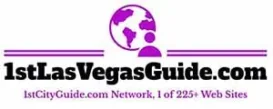Ethical Considerations in Accounting: What Every Professional Should Know - Las Vegas Edition
2024.5.31
Being aware of and following ethics is important for every accountant. In accounting ethics include integrity, transparency and most of all honesty and not just following the laws and regulations. We’ll go through some key topics and see how accounting professionals integrate them in their daily business.
Transparency and Accuracy
Accountants are required to present an honest and accurate financial health of the company at any time. If the results are good or bad, it does not play a role. Any attempt in adjusting the actual data will lead to bad consequences. Some might also include legal actions and more importantly, loss of trust from stakeholders.
Accuracy and transparency go hand in hand in accounting. All data must be correct and free of errors. Any mistakes can result in misleading decision makers making poor business decisions and financial losses
Getting Ready
Confidentiality
Professionals should be aware of who has access to confidential information. Confidential information should only be shared with authorized people. Breaching confidentiality can damage an organization’s reputation and lead to legal issues.
Conflict of Interest
Personal interest should never interfere with professional responsibilities. For example, even if an accountant has personal financial interest in a company, their reporting must remain unbiased. Disclosing potential conflicts of interest to the relevant persons can prevent accountants being in unwanted situations.
Integrity
Integrity is about being straightforward and honest in all financial business. Accountants must avoid all dishonest activities. Keeping integrity builds trust with clients, employers and the public.
Professional Behavior
Professional behavior is following and respecting laws. Regulations and standards are also included . Accountants should invest in their education to keep up to date with all the changes in the regulations, enabling them to provide up-to-date information to clients and employers. Acting with courtesy and respect towards all the people involved in the business is another part of professional behavior.
Objectivity
Objectivity results in financial reports and advice being based on facts and evidence, not personal feelings or external pressures. Personal feelings or opinions do not have a room in accounting.
Fair Presentation
Providing a truthful and complete view of the financial position of an entity is fair presentation. This means not adjusting any significant information influencing the understanding of the financial statements. Accountants should strive to present information free from bias and not misleading.
Ethical Decision Making
When making decisions, accountants should consider the potential impact on people affected by them. One way to approach ethical decision-making is by using ethical guidelines. These frameworks can help accountants overcome difficult situations and make choices within ethical standards.
Whistleblowing
Whistleblowing is reporting unethical or illegal activities within an organization. Accountants have a duty to report any actions violating laws or ethical standards. Organizations should have clear policies and protections in place for whistleblowers, to encourage reporting of unethical behavior without fear of consequences.
Continuing Professional Development
Accountants should stay current with ethical standards, laws, and best practices. This can include attending workshops, earning certifications, and participating in professional organizations. Learning prepares accountants handling ethical dilemmas so they can provide the highest standard services.
Accountability
Accountability is about taking responsibility for one’s actions and decisions. In accounting, this means being answerable for the accuracy and integrity of financial reports and other related tasks.
Technology and Ethics
With the increasing use of technology in accounting, ethical considerations have also evolved. Accountants must be aware of the ethical implications of using technology, including data security, privacy, and the potential for automation to impact jobs. Ethical use of technology includes: protecting data against breaches, using software responsibly, and being transparent about how technology is used in processes.
1stLasVegasGuide.com

We List Only the Best
1st Las Vegas Guide is not a list of every business. Our website highlights only the best businesses / places / events are featured within these pages. This makes Las Vegas even more magical for residents and visitors alike.

Advertise Your Company
You can be seen by a high quality audience when you place an advertisement on 1st Las Vegas Guide. Not all companies are accepted… Call 702-210-4201 to be have your company seen by affluent buyers. You will be amazed how with the low price.

1st City Guide Expansion
1stCityGuide.com is the parent company of 225+ city guides worldwide. We are expanding and looking for Licensee partners to work together and provide a quality income when sharing the secrets of great cities around the world with visitors and residents alike. Call 702-210-4201 to discuss pricing and city guide availabilities.
